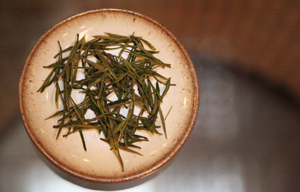Tastes maturing, but French wine still dominant
"But we should never overlook these attempts, because they may indicate the future trend."
According to Liu, there are two main reasons for challenges to the position of French wine.
One is that Chinese buyers are better cultivated in fine wine culture so they have more knowledge and look for high-quality wine without an exorbitant price.
The other is the widespread fake "French" vintages that hinder some consumer choice.
In the past two years, official agricultural delegations and vintner organizations from New Zealand, Australia, Argentina and the US have paid frequent visits to China looking for trade partners or distributors.
They hold press conferences, tasting events or help with charitable activities.
"It helps a lot in the promotion of their wine, some of it produced in small family owned wineries," said Liu.
But Liu admits French wine still has its overwhelming advantages.
"More than 60 percent of the imported wines in China are French.
"In the next few years, French wine will still account for more than a half of YesMyWine sales," he noted.
"The French wineries and traders know better how to distribute their wine in a standard way and we appreciate that professionalism.
"After all, our market is beyond comprehension."
China was still the top export client of Bordeaux wines last year, according to the latest industry data from the Bordeaux Wine Council that represents more than 10,000 producers and growers in the region.
Last year, 64 million liters of Bordeaux were imported to China, twice of the volume in Germany, according to the council. Some 23 percent of total wine exports are consumed by the region, the council said.
"Old World wines, especially French and Italian, will continue to enjoy an unquestioned status in China's wine investment market," said Liu.
|
|
|
| French wine a Chinese entree | When white is right |


















